There is a lot of debate surrounding whether or not you should meditate in the dark.
On one side, some people believe that it’s best to do so because it creates a more relaxing and calming environment.
On the other side, some people believe that it’s better to have some light because it helps keep your mind focused.
So, which is the right way to do things? Keep reading.
Meditation In The Darkness
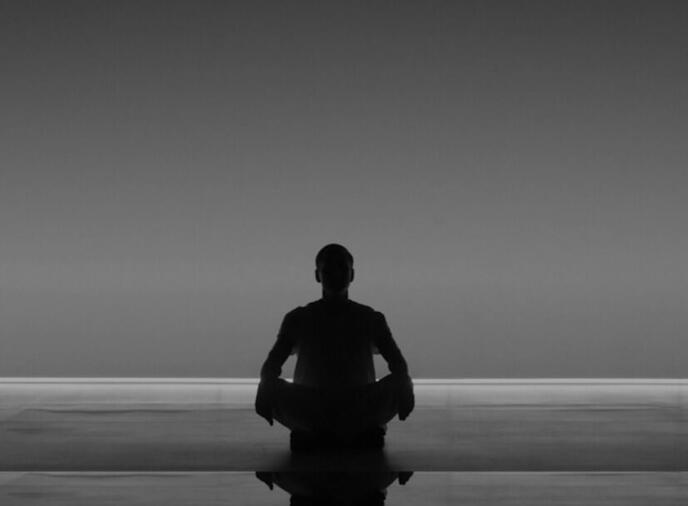
Should you meditate in the dark? Some say you should meditate in the dark because it allows your body to relax more.
The logic behind this is that when we are in complete darkness, our bodies produce more melatonin which makes us feel sleepy.
This can be beneficial if you’re looking to wind down and ease into a deep meditation.
In addition, some people find that being in the dark creates a more calming and serene environment, which is ideal for meditation.
Pros of meditating in the Darkness
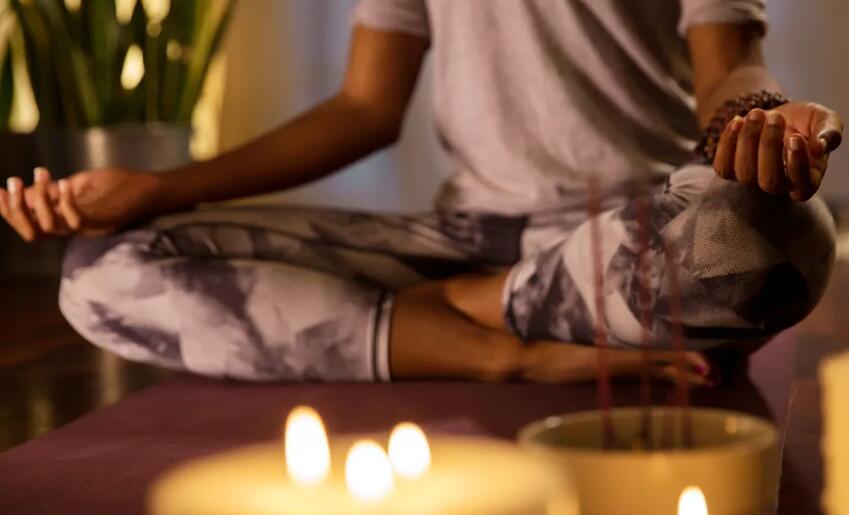
If you’re like most people, you probably associate meditation with sitting in a quiet, dim room with your eyes closed.
But there’s actually no rule that says you have to meditate in the light.
In fact, some people find that meditating in the dark can be even more effective. Here are a few reasons why:
1. It can help you relax.
When you’re in a dark room, your mind doesn’t have to process visual information. This can help you relax and focus more easily on your breath and another mantra.
2. It can reduce distractions.
If you’re trying to meditate in a noisy or busy environment, blocking out all the external stimuli can be difficult. But when it’s dark, there’s nothing for your mind to focus on except your breath and mantra.
3. It can increase your sense of calm.
When we’re in the dark, our bodies produce more melatonin, which is a hormone that makes us feel relaxed and sleepy. So if you’re having trouble winding down at night, meditating in the dark can help you get the rest you need.
4. It can enhance your spiritual practice.
For some people, meditating in the dark can create a sense of connection to the divine or the cosmos. If you’re looking to deepen your spiritual practice, meditating in darkness may be for you.
5. It can boost your creativity.
If you’re working on a creative project, meditating in the dark can help you tap into your subconscious mind and come up with new ideas.
So if you’re looking to try something new with your meditation practice, consider giving it a go in the darkness!
Cons of meditating in the lightness
Sure, meditation has a lot of benefits. But there are also some potential drawbacks to meditating in the dark. For one thing:
It can be pretty disorienting.
Sitting in complete darkness can be disconcerting and even a little bit scary if you’re not used to it.
It’s also easy to lose track of time when you can’t see the sun or a clock. You might find yourself meditating for longer than you intended, which can be frustrating if you’ve got other things to do.
And if you’re trying to meditate in a completely dark room, you might find that your mind starts wandering more than usual.
After all, it’s hard to focus on your breath when you can’t see anything around you.
Meditation With Some Light
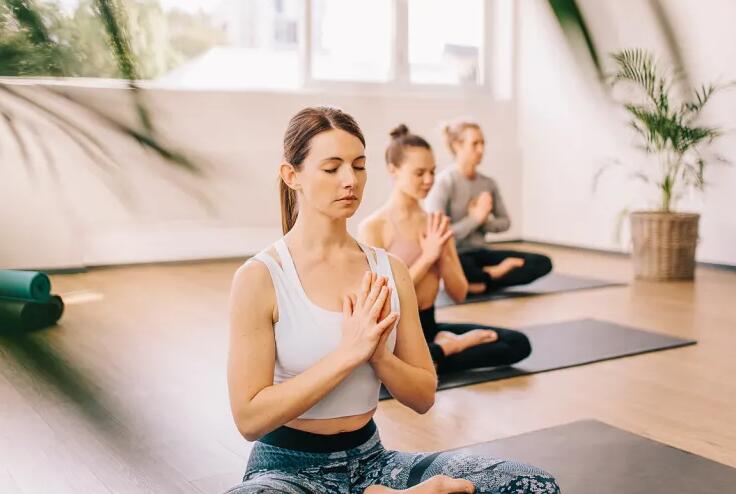
On the other hand, some people argue that having at least some light while you meditate is beneficial because it allows you to keep your mind more focused.
The logic behind this is that when our eyes are open, they constantly send information to our brains. This can make it difficult to focus on one thing and achieve a deep level of meditation.
However, if you have some light, it can help your brain focus Meditation should be an enjoyable and relaxing experience.
Pros of meditating in the lightness
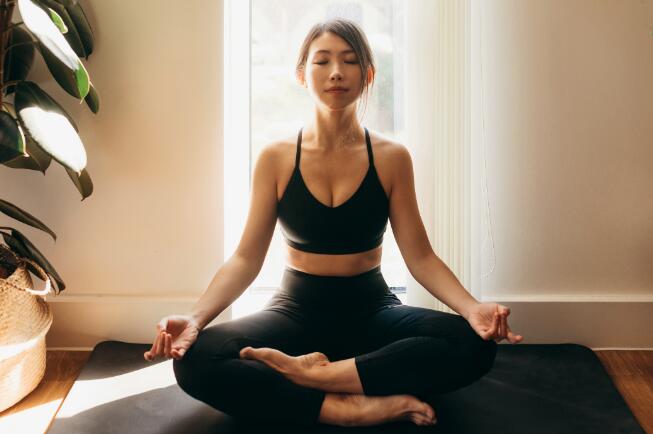
We all know that meditating can have some pretty great benefits. But what about meditating in the light? There are actually some pretty big Pros to doing this!
1. It improves your mood and energy levels.
When you meditate in the light, you’re letting in all of that good natural sunlight.
This can help regulate your sleep cycle and make you feel more alert and awake overall. Additionally, studies have shown that exposure to natural light can help to reduce stress levels and improve your overall mental health.
2. It boost your immune system.
That’s because when you’re exposed to natural light, your body produces more vitamin D.
Vitamin D is essential for a healthy immune system, and it can also help to reduce inflammation throughout the body.
So if you’re looking for a way to naturally boost your immunity, meditating in the light is a great place to start!
3. It improves your concentration and focus.
If you have trouble concentrating during meditation, try doing it in a well-lit room or outdoors in nature. The natural light will help to keep you grounded and focused on your practice.
So, if you’re looking for a way to improve your mood, reduce stress, boost your immunity, or just generally improve your meditation practice, give it a try!
Cons of meditating in the lightness
Though it is said that meditating in the light can have multiple benefits, there are also some drawbacks to this method that should be considered.
It can be difficult to maintain focus.
If there is a lot of movement or noise around you, it can be difficult to keep your mind from wandering.
Additionally, meditating in the light can also make you more aware of your surroundings, which can sometimes be overwhelming.
If you are trying to relax and clear your mind, becoming more aware of your surroundings can actually work against you.
And you are prone to migraines or headaches; meditating in the light can actually trigger these headaches.
What Are The Best Lightness/darkness For Mediating?
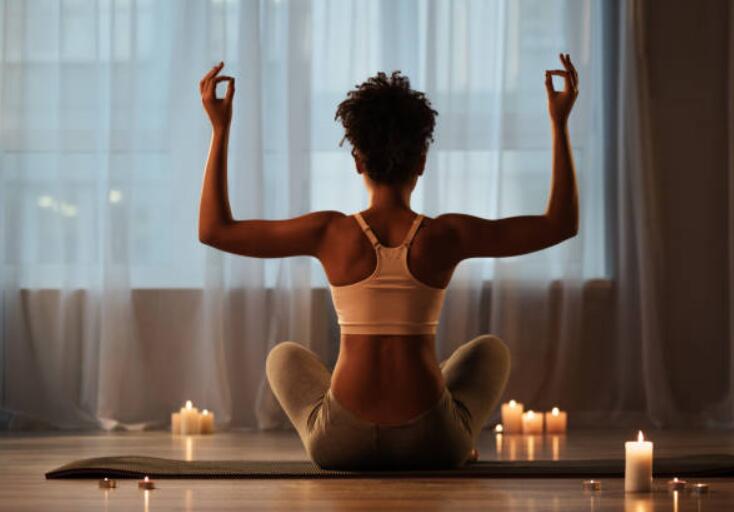
There is no definitive answer, as different people may have different preferences.
If you are new to meditation, starting in a well-lit room or outdoors in nature might be best. This will help you maintain focus and stay grounded in your practice.
As you become more comfortable with meditation, you can experiment with different types of lighting to see what works best for you.
There are pros and cons to both light and dark meditation. It is ultimately up to the individual practitioner to decide what works best for them. Whichever method you choose, make sure that you are comfortable and able to relax into your practice.
Other Factors to Consider when Mediating
Besides the lighting, here are more factors to consider when mediating:
1. Posture: sitting, standing, or lying down?
The most important thing is to be comfortable. You should not feel any pain in your body while meditating.
If you are new to meditation, sitting in a chair with your feet on the ground is a good place to start.
Once you become more comfortable, you can try other positions such as lying down or standing up.
2. Location: indoors or outdoors?
Some people find it easier to relax indoors while others prefer being in nature.
If you are meditating indoors, ensure the room is not too bright or too dark. You should also avoid any distractions such as televisions, phones, or computers.
If you are meditating outdoors, find a spot away from noise or movement. Sitting under a tree or by a body of water can be especially calming.
3. Length of time: how long should you meditate for?
Start with a short session (five minutes or less) and gradually increase the length of time as you become more comfortable, let’s say, 2 hours.
If you are getting antsy or restless, it is ok to end your session early. The most important thing is to be patient and kind to yourself.
4. Guided or unguided: should you meditate with a guide or on your own?
It might be helpful to meditate with a guide. This can be done through an app, audio recording, or in person.
Guided meditation can help you relax and focus on your breath. Once you become more comfortable with the practice, you can try meditating on your own.
Conclusion
There is no right or wrong answer when it comes to should you meditate in the dark or light.
It is ultimately up to the individual practitioner to decide what works best for them. Whichever method you choose, make sure that you are comfortable and able to relax into your practice.
Experiment with different types of lighting to see what works best for you. Other factors to consider when mediating include posture, location, length of time, and whether you want to meditate with a guide or on your own.
